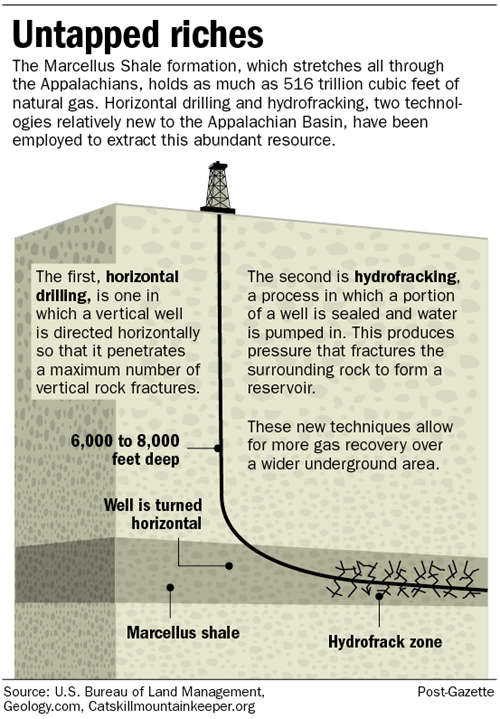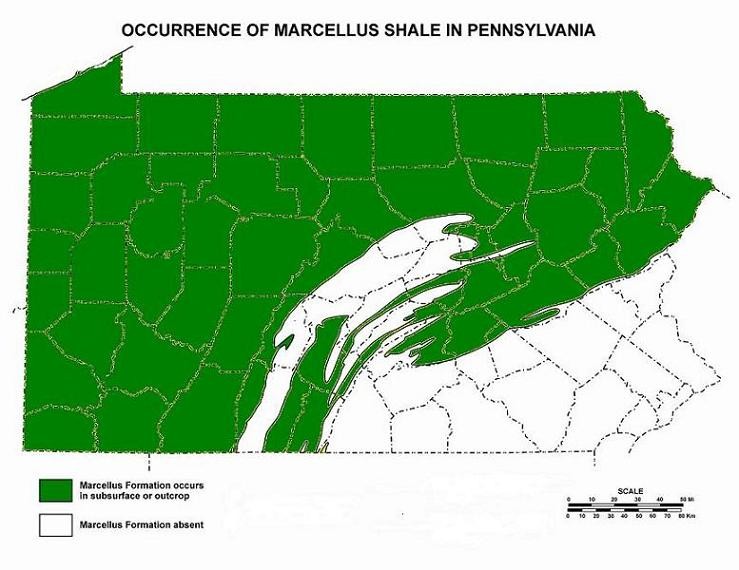
INQUIRER: The Mariner Project, as Sunoco Logistics Partners L.P. has dubbed it, calls for construction of a refrigerated terminal to store supercooled ethane at one of Sunoco’s existing facilities. Philadelphia, Marcus Hook, and Westville, Gloucester County, are possibilities. The deal between Sunoco Logistics and MarkWest Energy Partners L.P. addresses one of the issues nagging gas operators as production in the Marcellus Shale rapidly escalates: how to transport the growing volume of natural gas and its byproducts to market. Marcellus wells in northern Pennsylvania produce “dry gas,” mostly methane, that can be sold by pipeline directly to electrical generators or homeowners, without additional processing. But Marcellus wells in southwestern Pennsylvania produce a sidestream of high-value hydrocarbons such as ethane, butane, and propane that must be separated at plants operated by companies like MarkWest, a Colorado firm. Ethane is a major ingredient in ethylene, which is used to produce plastics. The biggest markets for ethane are petrochemical plants in Texas and Louisiana. MORE
WIKIPEDIA: The Marcellus Formation, also is classified as the Marcellus Subgroup of the Hamilton Group, Marcellus Member of the Romney Formation, or simply the Marcellus Shale, is a unit of marine sedimentary rock found in eastern North America. Named for a distinctive outcrop near the village of Marcellus, New York,[3] it extends throughout much of the Appalachian Basin.[4] The shale contains largely untapped natural gas reserves, and its proximity to the high-demand markets along the East Coast of the United States make it an attractive target for energy development.[5] In 2008, Terry Engelder, a Pennsylvania State University geosciences professor called his estimate of 4,800 km3 (1.7×1014 cu ft) (170  TCF) conservative.[117] In November 2008, based on drilling results, Engelder increased his estimate of the amount of natural gas in the Marcellus to 363 TCF of recoverable resource, which would be enough to supply U.S. consumption for at least fourteen years[120].
TCF) conservative.[117] In November 2008, based on drilling results, Engelder increased his estimate of the amount of natural gas in the Marcellus to 363 TCF of recoverable resource, which would be enough to supply U.S. consumption for at least fourteen years[120].
RELATED: More than a mile beneath parts of Pennsylvania lies a mostly untapped reservoir of natural gas. Geologists and energy companies have known for decades about the gas in the Marcellus Shale, but only recently have figured out a way to extract it from the thick black rock about 6,000 feet underground. Now gas drillers are leasing local land – more than 25,000 acres in Luzerne County alone – in an attempt to find and remove the gas, the value of which increases as energy prices soar. In January 2008 leases were being signed for values near $100 per acre. By May that value had increased to over $2000 per acre. With lease values changing so rapidly, landowners are unsure at what price to accept a lease offer. Kenneth L. Balliet, a forestry and business management educator with the Penn State Cooperative Extension, recently took a trip to Fort Worth to see the economic impacts of those deposits. He said leases are being signed for $18,000 per acre in areas where production has proven strong. There were 195 Marcellus Shale wells drilled in Pennsylvania in 2008 and another 768 in 2009, according to the state Department of Environmental Protection. Another 364 have been drilled this year as of May 5. There were only about 20 wells in Pennsylvania when Balliet was first interviewed, and he expects local production to eventually rival Texas’ Barnett Shale. He said a gas company confided it planned to spend $1 billion in 2008 in leasing agreements in Pennsylvania. MORE
